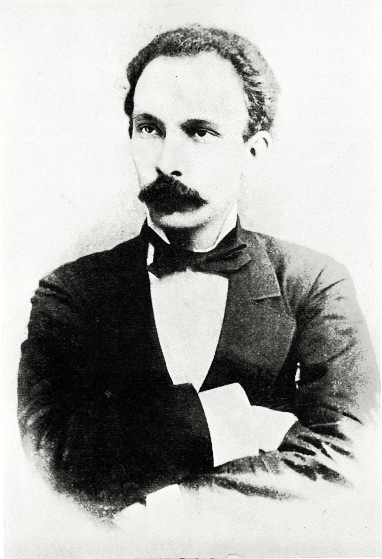 Saudi Arabia, a kingdom in retreat
Saudi Arabia, a kingdom in retreat
by Alon Ben-Meir
The Kingdom of Saudi Arabia, which was once at the front and center of the Arab world and a significant player on the global stage due to its oil riches, has been steadily losing its regional influence and prominent role. In recent years, Saudi Arabia has been confronted with multiple challenges simultaneously, including its domestic, social, political, economic and religious trials, its conflict with Iran, its bilateral relations with the United States, the rise of extremism, and the intra-Arab crisis. Saudi Arabia failed to catch up with the rapidly changing developments that engulfed the region, and now it finds itself squeezed from all angles, with little prospect of relief unless the kingdom undertakes sweeping changes.
The challenge for Saudi Arabia is that given its culture, socio-political make up, and the dominant role of religion, it will be extraordinarily difficult for the Saudis to change direction without experiencing great turmoil that could destabilize the country for many years to come. That said, the Saudis have little choice but to begin serious domestic and foreign policy reforms consistent with the changing regional geopolitical environment, and do so gradually to preserve the integrity and stability of the kingdom.
The growing domestic challenges:Since the 2003 Iraq war and especially in the wake of the Arab Spring, the country is going through an identity crisis. There is growing unrest among many youth who no longer tolerate living in servitude and oppression — they want more freedom and civil rights, and refuse to settle for handouts to keep them quiet.
With the eruption of the Arab Spring, the government spent $130 billion to silence the opposition. These top-to-bottom handouts failed to satisfy the nearly 60 percent of the population under the age of twenty-one.
They are unwilling to live in a country where criticism of the government is considered a threat to national security, live fire is used against protesters, secret police are everywhere, freedom of speech is completely stifled, and women are confined to the home.
Any political opposition is quelled by force, and punishments for crimes such as blasphemy, sorcery, and apostasy, are gruesome and carried out publicly. In 2015 alone, 157 people were beheaded, and more than 82 have been executed thus far in 2016, which is twice as many as have been beheaded by ISIS in the same time period.
Moreover, political activists serve long-term sentences and administrative detention is rampant. The opportunities for upward mobility and personal growth are limited, leaving little for which to aspire. This has led many young men to join various terrorist organizations in the search for a new identity.
Although there are women activists struggling for reform, violence against women is symptomatic in Saudi culture and is accepted as a means of controlling their behavior. The state-sanctioned execution of women convicted of adultery (whom are often in reality the victims of rape), and killing of women by male relatives (honor killing) for sexual offences, perceived or otherwise, is acceptable.
Religious oppression: Given that Saudi Arabia is the custodian of Sunni Islam and is the seat of the holiest Muslim shrines in Mecca (the birthplace of Muhammad) and Medina, the Saudis have carved for themselves a special role in the Sunni Muslim world.
The annual Hajj to Mecca further enshrines the Saudis’ religious role and enhances their strict form of Sunni Islam (Wahhabism), which they have been exporting to every Muslim state by building thousands of schools (madrassas) at an exorbitant cost.
The country is run by sharia law, music is not allowed, religious police are given extended authority to use extreme violence, and the religious Committee for the Promotion of Virtue and the Prevention of Vice enforces Islamic law. All Saudis are expected to attend mosque every Friday, and Wahhabism is taught from an early age.
Saudi Arabia uses religion to control the population and teaches to hate those who do not share their Islamic values. The clergy exercises extraordinary power and are free to issue edicts (fatwas) at their pleasure.
The religious system is often run contrary to the social, political, and economic aspirations of the young, and is leading to a growing resentment which is becoming increasingly troublesome for the government.
The looming economic crisis: With estimated oil reserves of 270 billion barrels, the fall of oil prices has had an unprecedented effect on the Saudi economy. The oil crisis has inflicted major economic disruption, forced the government to cut subsidies and curtail many development projects, and reduced its international stature and ability to exert influence over other Arab states.
Although the Saudis have nearly $660 billion in cash reserves, the government has withdrawn roughly $70 billion to make up for shortages in the fiscal 2015 national budget. If the price of oil decreases further in the next few years, the Saudi economy could go bankrupt.
There is massive inequality between the various classes. Nearly one fifth of the population lives in poverty, especially in the predominantly Shiite south where, ironically, much of the oil reservoirs are located. In these areas, sewage runs in the streets, and only crumbs are spent to alleviate the plight of the poor.
While the poor are getting poorer, thousands of princes and princesses live lavishly (mostly in Europe), spending hundreds of millions of dollars and occupying opulent villas, which further drains economic resources.
Being that Saudi Arabia has and continues to be almost completely dependent for revenue on oil exports, which has more than covered its national budget, it had no compelling reason to develop diversified industries.
Moreover, the Saudis became increasingly dependent on millions of foreign laborers, who are subjected to abusive, slave-like conditions, to do the ‘dirty work’ that Saudi citizens are unwilling to undertake.
The hostile rivalry with Iran: The relationship between Sunni Saudi Arabia and Shiite Iran has always been characterized by tension and mistrust. The quiet enmity came to the fore in the wake of the 2003 Iraq war and the growing influence of Tehran over the Shiite Iraqi government.
This was further aggravated with the eruption of the civil war in Syria, where Iran supported the Assad regime with money, military equipment, training, and subsequently foot soldiers, while the Saudis provided similar aid to the rebels opposed to Assad, short of dispatching ground troops.
The enmity between the two countries took another turn for the worse when it was suspected that Iran was pursuing a nuclear weapons program, which Riyadh viewed as a direct threat to its national security. Despite the Iran deal, the Saudis remain deeply skeptical about Tehran’s ultimate intentions.
The Iraq war also ignited the dormant millennium-old religious conflict between Sunnis and Shiites, and Syria and Iraq became the battleground between the two sects, where the bloodshed continues unabated, claiming the lives of thousands each year.
The execution of the Saudi Shiite cleric Sheikh Nimr al Nimr — an icon who called for addressing human rights violations in Saudi Arabia, was charged with incitement and treason, and sentenced to death along with 46 others — further deepened the animosity between the two countries. This caused unrest among Shiites in the country, sparked protests in Tehran, and was condemned by the international community.
To be sure, although Tehran recently called for reconciliation with the Saudis, the latter rejected the Iranian gesture as the Saudis view the conflict with Iran as irreconcilable, mainly due to religious and geopolitical reasons, as both seek to exercise regional hegemony.
Due to the size of the population, its natural resources, and industrial advancement, the Saudis believe that Iran will inevitably become the regional powerhouse, with the ability and resources to intimidate the entire Gulf region (especially once it acquires nuclear weapons), which the Saudis consider their own domain.
The unsettling relations with the United States: athough Saudi Arabia and the Americans have enjoyed decades of close bilateral relations, the relationship has soured over changing US geostrategic interests and its ‘pivot’ to the East, and the manner in which it has tackled the Syrian civil war and the Iran deal.
While the United States continues to support Saudi Arabia militarily and remains the de facto guarantor of its national security, the Saudis remain unconvinced of the US commitment to that end.
Indeed, from the vantage point of regional security, the Obama administration chose to draw a balance between Saudi Arabia and Iran. In a recent interview with the Atlantic, President Obama said that they “need to find an effective way to share the neighborhood.” Moreover, Obama believes that bringing Iran out of its isolation will lead to greater regional stability, from which the Saudis will also benefit.
Another point of contention between the two countries is Obama’s failure to make good on his vow to punish Assad if he crossed the “red line” of using chemical weapons against civilians, which created serious doubts in the minds of the Saudis that the US won’t come to their aid, even if their security is threatened.
Despite repeated efforts by the United States to assure the Saudis of America’s unwavering commitment to their national security, the strained relationship is likely to persist. The Saudis still believe that the nuclear deal will only delay rather than end Iran’s ambition to acquire nuclear weapons, which may lead to regional nuclear proliferation.
The dangerous intra-Arab crisis: due to its riches and ability to provide financial support to several Arab countries including Jordan and Egypt, the Saudis have been able to exert significant influence throughout the region and essentially assume the leadership role of the Arab world, which was traditionally held by Egypt.
With the rise of Egyptian President Sisi to power, however, the pendulum swung back and Egypt reassumed its leadership role, even though the country remains in need of Saudi financial aid. The recent visit of the Saudi monarch attests to the Kingdom’s need of Egypt’s support in confronting Iran, the turmoil in Iraq and Syria, and in its fight against the Houthis in Yemen.
The prognosis for the future does not bode well for Saudi Arabia as the Sunni-Shiite conflict is simply unwinnable, and regardless of how the civil war in Syria comes to an end, Iran will continue to exercise considerable influence in the country. The same can be said about Iraq, which has, in any case, a Shiite majority.
In conclusion, Saudi Arabia must face these challenges head on and avoid what might become an albatross that would choke off its potential to be a significant player in and outside the region.
In dealing with human rights, the current state of affairs is bound to come back and haunt the Saudi government as it would be impossible to silence such a huge segment of the population, even with the use of brutal force.
Young men should be given greater opportunities for growth, and women deserve basic civil rights and freedom from servitude; the Kingdom can accomplish this while still maintaining Islamic tradition along the lines of what other Gulf states have successfully done.
The Saudi government must wake up to this ominous development because it is now only a matter of time when the young will rise and be prepared to die, like many of their brethren in Egypt, Libya, and Syria, for a cause they believe in.
In relation to the practice of religion, the survival of the kingdom may well depend on its ability to ease religious pressure and decisively limit the internal religious police’s prerogatives to use force at their whims without any accountability.
It is about time to modify the criminal justice system and end the public display of beheadings, which does nothing but further alienate the public—instead of spreading fear and awe, it breeds hatred and resentment of the government, which only increases defiance.
The government must heed the public outcry without necessarily compromising the religious principles that guide the county. Being a devout Muslim is one thing, but using religion arbitrarily and as a tool to subjugate the people will no longer be tolerated.
In addition, the government must end draconian legislation in the name of religion. In fact, the more religious laws and edicts are imposed, the greater the youth’s rejection will be.
Economically, the country must now focus on industrial development on a large scale and gradually reduce its dependence on revenue generated from the energy sector. This will provide over time millions of jobs and create a self-sustaining middle class.
In addition, the government should also invest in sustainable development projects that would allow communities to choose their own projects, develop a sense of empowerment while supporting themselves without handouts, and regain their self-respect.
Regarding the Saudi-Iranian conflict, both sides ought to begin a process of reconciliation and restore diplomatic relations, which could also potentially help facilitate a mutually-accepted solution to Syria’s civil war.
With the best of intentions, the bilateral relations between the two countries will continue to experience ups and downs, and hence accepting the inescapable reality of where each stands religiously and geopolitically could ease tensions and lead to improved relations, recognizing that neither of them can win the religious war or dominate the entire region.
In respect to the United States, the Saudis have little choice but to trust the Americans to stand by it, not only because of the US commitment to shield the kingdom from outside threats, but also because the United States continues to have major strategic interests in the region.
The Saudis, however, must also understand that in being a global power, the United States must balance its overall strategic interests with its bilateral relations with countries who are hostile to one another; the Israeli-Palestinian conflict and the Iran deal offer good cases in point.
And finally, in connection with intra-Arab relations, Saudi Arabia can still play a leading role, but it must adjust to unfolding events throughout the region while maintaining its leadership role in the Gulf.
Moreover, the Saudis, who have genuine concerns over the security of the entire Arabian Peninsula, should work toward ending the violence between the Houthis and the internationally-recognized government of Yemen.
Saudi Arabia is facing a pivotal crossroad; the kingdom must take a hard look at its internal and external affairs and chart a new course to stave off the otherwise inevitable violent eruption by the country’s youth who are no longer willing to live with the status quo.
The above challenges cannot be overcome unless Saudi Arabia faces reality, as none will be mitigated by wishful thinking or by the use of excessive force and brutal acts in the name of a higher authority, which has long since been universally rejected with revulsion.
Saudi Arabia has the human and natural resources to reclaim its leadership role in the Gulf, and together with other regional powers must embark on a process of reconciliation, which is the only recipe for stability and peace.
Dr. Alon Ben-Meir is a professor of international relations at the Center for Global Affairs at NYU.
~ ~ ~
The announcements below are interactive. Click on them for more information




 Carbon taxation / Tributación del Carbono
Carbon taxation / Tributación del Carbono























